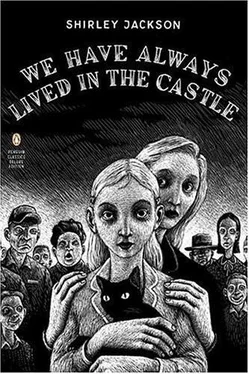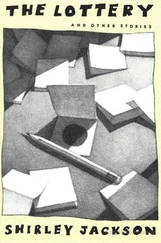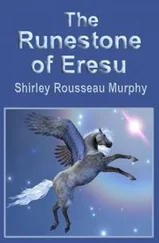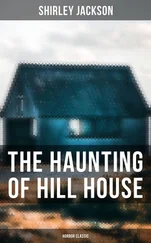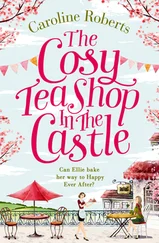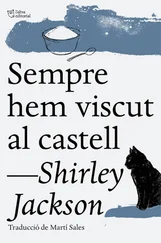Shirley Jackson - We Have Always Lived in the Castle
Здесь есть возможность читать онлайн «Shirley Jackson - We Have Always Lived in the Castle» весь текст электронной книги совершенно бесплатно (целиком полную версию без сокращений). В некоторых случаях можно слушать аудио, скачать через торрент в формате fb2 и присутствует краткое содержание. Город: New York, Год выпуска: 2006, ISBN: 2006, Издательство: Penguin Books, Жанр: Триллер, gothic_novel, на английском языке. Описание произведения, (предисловие) а так же отзывы посетителей доступны на портале библиотеки ЛибКат.
- Название:We Have Always Lived in the Castle
- Автор:
- Издательство:Penguin Books
- Жанр:
- Год:2006
- Город:New York
- ISBN:978-1-101-53065-8
- Рейтинг книги:3 / 5. Голосов: 1
-
Избранное:Добавить в избранное
- Отзывы:
-
Ваша оценка:
- 60
- 1
- 2
- 3
- 4
- 5
We Have Always Lived in the Castle: краткое содержание, описание и аннотация
Предлагаем к чтению аннотацию, описание, краткое содержание или предисловие (зависит от того, что написал сам автор книги «We Have Always Lived in the Castle»). Если вы не нашли необходимую информацию о книге — напишите в комментариях, мы постараемся отыскать её.
is a deliciously unsettling novel about a perverse, isolated, and possibly murderous family and the struggle that ensues when a cousin arrives at their estate.
We Have Always Lived in the Castle — читать онлайн бесплатно полную книгу (весь текст) целиком
Ниже представлен текст книги, разбитый по страницам. Система сохранения места последней прочитанной страницы, позволяет с удобством читать онлайн бесплатно книгу «We Have Always Lived in the Castle», без необходимости каждый раз заново искать на чём Вы остановились. Поставьте закладку, и сможете в любой момент перейти на страницу, на которой закончили чтение.
Интервал:
Закладка:
I am walking on their bodies, I thought, we are having lunch in the garden and Uncle Julian is wearing his shawl. I always held my groceries carefully along here, because one terrible morning I had dropped the shopping bag and the eggs broke and the milk spilled and I gathered up what I could while they shouted, telling myself that whatever I did I would not run away, shovelling cans and boxes and spilled sugar wildly back into the shopping bag, telling myself not to run away.
In front of Stella’s there was a crack in the sidewalk that looked like a finger pointing; the crack had always been there. Other landmarks, like the handprint Johnny Harris made in the concrete foundation of the town hall and the Mueller boy’s initials on the library porch, had been put in in times that I remembered; I was in the third grade at the school when the town hall was built. But the crack in the sidewalk in front of Stella’s had always been there, just as Stella’s had always been there. I remember roller-skating across the crack, and being careful not to step on it or it would break our mother’s back, and riding a bicycle past here with my hair flying behind; the villagers had not openly disliked us then although our father said they were trash. Our mother told me once that the crack was here when she was a girl in the Rochester house, so it must have been here when she married our father and went to live on Blackwood Farm, and I suppose the crack was there, like a finger pointing, from the time when the village was first put together out of old grey wood and the ugly people with their evil faces were brought from some impossible place and set down in the houses to live.
Stella bought the coffee urn and put in the marble counter with the insurance money when her husband died, but otherwise there had been no change in Stella’s since I could remember; Constance and I had come in here to spend pennies after school and every afternoon we picked up the newspaper to take home for our father to read in the evening; we no longer bought newspapers, but Stella still sold them, along with magazines and penny candy and grey postcards of the town hall.
“Good morning, Mary Katherine,” Stella said when I sat down at the counter and put my groceries on the floor; I sometimes thought when I wished all the village people dead that I might spare Stella because she was the closest to kind that any of them could be, and the only one who managed to keep hold of any color at all. She was round and pink and when she put on a bright print dress it stayed looking bright for a little while before it merged into the dirty grey of the rest. “How are you today?” she asked.
“Very well, thank you.”
“And Constance Blackwood, is she well?”
“Very well, thank you.”
“And how is he ?”
“As well as can be expected. Black coffee, please.” I really preferred sugar and cream in my coffee, because it is such bitter stuff, but since I only came here out of pride I needed to accept only the barest minimum for token.
If anyone came into Stella’s while I was there I got up and left quietly, but some days I had bad luck. This morning she had only set my coffee down on the counter when there was a shadow against the doorway, and Stella looked up, and said, “Good morning, Jim.” She went down to the other end of the counter and waited, expecting him to sit down there so I could leave without being noticed, but it was Jim Donell and I knew at once that today I had bad luck. Some of the people in the village had real faces that I knew and could hate individually; Jim Donell and his wife were among these, because they were deliberate instead of just hating dully and from habit like the others. Most people would have stayed down at the end of the counter where Stella waited, but Jim Donell came right to the end where I was sitting and took the stool next to me, as close to me as he could come because, I knew, he wanted this morning to be bad luck for me.
“They tell me,” he said, swinging to sit sideways on his stool and look at me directly, “they tell me you’re moving away.”
I wished he would not sit so close to me; Stella came toward us on the inside of the counter and I wished she would ask him to move so I could get up and leave without having to struggle around him. “They tell me you’re moving away,” he said solemnly.
“No,” I said, because he was waiting.
“Funny,” he said, looking from me to Stella and then back. “I could have swore someone told me you’d be going soon.”
“No,” I said.
“Coffee, Jim?” Stella asked.
“Who do you think would of started a story like that, Stella? Who do you think would want to tell me they’re moving away when they’re not doing any such thing?” Stella shook her head at him, but she was trying not to smile. I saw that my hands were tearing at the paper napkin in my lap, ripping off a little corner, and I forced my hands to be still and made a rule for myself: Whenever I saw a tiny scrap of paper I was to remember to be kinder to Uncle Julian.
“Can’t ever tell how gossip gets around,” Jim Donell said. Perhaps someday soon Jim Donell would die; perhaps there was already a rot growing inside him that was going to kill him. “Did you ever hear anything like the gossip in this town?” he asked Stella.
“Leave her alone, Jim,” Stella said.
Uncle Julian was an old man and he was dying, dying regrettably, more surely than Jim Donell and Stella and anyone else. The poor old Uncle Julian was dying and I made a firm rule to be kinder to him. We would have a picnic lunch on the lawn. Constance would bring his shawl and put it over his shoulders, and I would lie on the grass.
“I’m not bothering anybody, Stell. Am I bothering anybody? I’m just asking Miss Mary Katherine Blackwood here how it happens everyone in town is saying she and her big sister are going to be leaving us soon. Moving away. Going somewheres else to live.” He stirred his coffee; from the corner of my eye I could see the spoon going around and around and around, and I wanted to laugh. There was something so simple and silly about the spoon going around while Jim Donell talked; I wondered if he would stop talking if I reached out and took hold of the spoon. Very likely he would, I told myself wisely, very likely he would throw the coffee in my face.
“Going somewheres else,” he said sadly.
“Cut it out,” Stella said.
I would listen more carefully when Uncle Julian told his story. I was already bringing peanut brittle; that was good.
“Here I was all upset,” Jim Donell said, “thinking the town would be losing one of its fine old families. That would be really too bad.” He swung the other way around on the stool because someone else was coming through the doorway; I was looking at my hands in my lap and of course would not turn around to see who was coming, but then Jim Donell said “Joe,” and I knew it was Dunham, the carpenter; “Joe, you ever hear anything like this? Here all over town they’re saying that the Blackwoods are moving away, and now Miss Mary Katherine Blackwood sits right here and speaks up and tells me they’re not.”
There was a little silence. I knew that Dunham was scowling, looking at Jim Donell and at Stella and at me, thinking over what he had heard, sorting out the words and deciding what each one meant. “That so?” he said at last.
“Listen, you two,” Stella said, but Jim Donell went right on, talking with his back to me, and his legs stretched out so I could not get past him and outside. “I was saying to people only this morning it’s too bad when the old families go. Although you could rightly say a good number of the Blackwoods are gone already.” He laughed, and slapped the counter with his hand. “Gone already,” he said again. The spoon in his cup was still, but he was talking on. “A village loses a lot of style when the fine old people go. Anyone would think,” he said slowly, “that they wasn’t wanted.”
Читать дальшеИнтервал:
Закладка:
Похожие книги на «We Have Always Lived in the Castle»
Представляем Вашему вниманию похожие книги на «We Have Always Lived in the Castle» списком для выбора. Мы отобрали схожую по названию и смыслу литературу в надежде предоставить читателям больше вариантов отыскать новые, интересные, ещё непрочитанные произведения.
Обсуждение, отзывы о книге «We Have Always Lived in the Castle» и просто собственные мнения читателей. Оставьте ваши комментарии, напишите, что Вы думаете о произведении, его смысле или главных героях. Укажите что конкретно понравилось, а что нет, и почему Вы так считаете.
